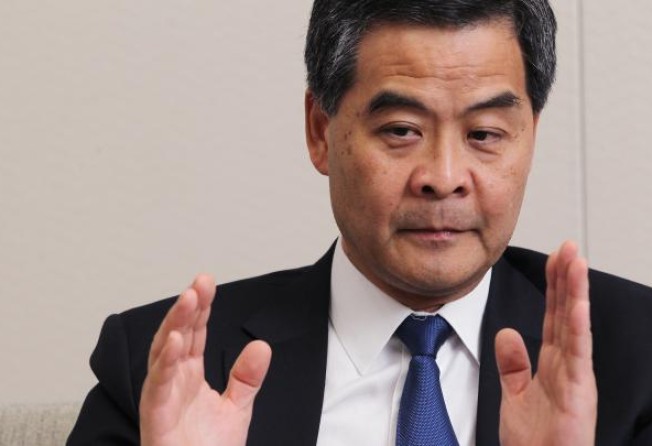C.Y. Leung says focus will be on increasing supply of flats
Measures to curb speculation will be introduced, but increasing supply is 'the key to the problem'

The government has a number of measures up its sleeve to curb property speculation that it can deploy at any time, while a ban on non-locals buying some new homes will "definitely" be expanded, Chief Executive Leung Chun-ying says.
But he said increasing supply would be the focus of his efforts to solve the city's housing problems, as a shortage of homes was at the root of a lack of affordable living space.
"We try not to use demand-management tools, partly because we have so far contained speculation by levying a special stamp duty. But I have to say, we do have in store a number of demand-side management policies," Leung said.
He pointed to measures to tighten mortgage borrowing for buyers of second homes, launched on the day the US announced a third round of quantitative easing last month.
"We didn't get up in the small hours on that Friday to ask ourselves: What we do now? We had that ready. So within 24 hours, we just put out the file and we made the announcement."
The government is due to review the special stamp duty next month. Academics have suggested more drastic proposals to curb demand, such as restrictions on second-home ownership by non-residents, and a value-added tax on earnings from reselling a property.
Leung said he would "definitely" expand a scheme being pioneered at two sites in Kai Tak, where only permanent residents will be able to own homes for the next 30 years.
He also defended the controversial plan to build three new towns in the northeastern New Territories to build up the land bank. He issued a challenge to those who oppose the plan, which would displace 1,700 families and take up much of the city's remaining farmland.
"We make this plea to people who believe that we don't need the project: please tell us if you believe we have alternative development opportunities in existing urban areas; please take out a map and draw circles around sites we could use. We would be extremely grateful."
Leung reiterated that the three towns would not be open to mainlanders visa-free.
But he declined to clarify his vision for visa-free access from the mainland to newly reopened land at the border. His idea of developing 400 hectares of land to create jobs for mainland professionals runs counter to the blueprint of the Planning Department, which wanted the land to remain a green buffer between the city and Shenzhen.
The plan for visa-free access, and rumours it would be extended to the new towns, has fuelled opposition to those towns.
"That would be something for another discussion," Leung said, when asked to clarify his ideas.